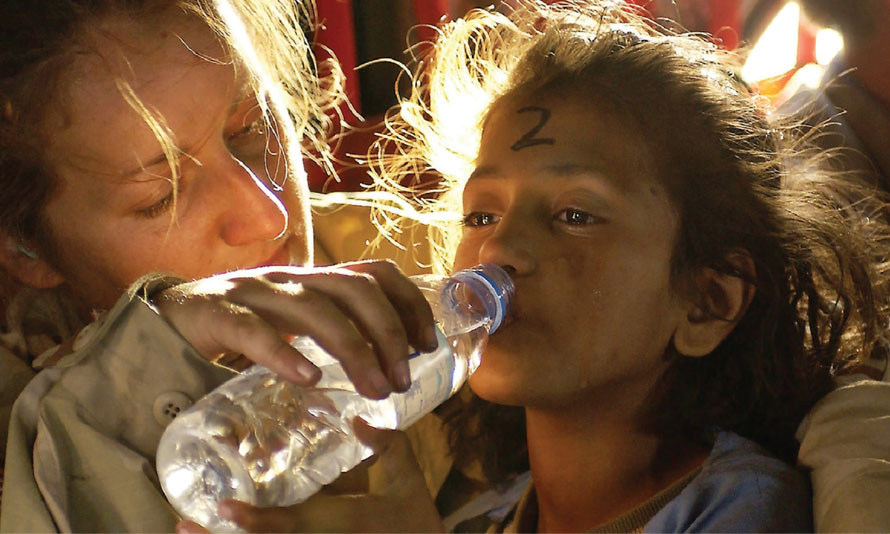
Omar Alnahi / www.pexel.com
Compassion and Being Human
Humanity is going through a challenging time, socially, culturally, ecologically and spiritually. We have grown much and advanced a great deal. We have achieved many great feats. But our almost morbid focus on material growth has also become a many tentacled monster. It deeply challenges our society, humanity and nature. We are now in the midst of social and ecological crises and collapse, something we have carelessly brought upon ourselves. Academics-as- usual will not help us face this cocktail of crises — it will only add more fuel to them.

Even as we celebrate the glittering temples of affluence and consumption, modernity has also scattered the globe with empires of cruelty and slavery and sites of pain and suffering, disasters and death. All these have scarred us deeply in many ways – physically, socially, culturally, psychologically, and spiritually – nudging us slowly to take serious note. And act.
Our individual and collective futures are dangerously at stake in the midst of present and growing social and ecological collapse. There is a moral and material battle within, as well as without, to reclaim and nurture the compassionate human spirit in the private and public sphere. It has come to a stage when only this will determine the future and survival of the species within (and by recognising) the limits set by the Nature. We have also come to slowly recognise that the compassionate human spirit does not just privilege the human and is inclusive of the non-human world. We have to engage with human as well as non-human rights.

Helena Lopez/www.pexel.com
The disquieting contexts we are in today put an urgent demand for those of us in the academia to reclaim the ‘human’ in humanities (and the ‘social’ in social sciences). It is a call for a more comprehensive ‘reclaim strategy’ that aims to capture the complexity of human engagement and existence within natural potentials and limits. It is reclaim strategy to include the nurturing of young minds to contribute to the public and to the common good of all.
In this effort to reclaim the ‘human’, the role of institutions of higher learning, like Xavier University Bhubaneswar (XUB), is very important. They offer dynamic, dialogic and nurturing spaces to influence and to shape the human spirit, directly or indirectly shaping generations of young people and their delicate interdependent futures.
Institutions like XUB have the potential to offer rich and open learningful spaces for nurturing a ‘new transdisciplinary humanities’ among young people who may not just be looking for run-of-the-mill degrees and careers but a more meaningful engagement with their futures, both in the private and public sense. Young people certainly want to contribute to the general wellbeing of society, to the common good of all. Recognising this, XUB has taken a mindful, and a giant, leap to imaginatively and institutionally nurture this opportunity against hastening global crises.
To strengthen the compassionate human agenda by re-imagining ‘human’ities (and ‘social’ sciences), XUB has taken the first step by establishing the Xavier Centre for New Humanities and Compassion Studies (XCHCS). Exploring and studying the complexity of human social existence and the self-other relationship from a transdisciplinary perspective creatively allows for stream like ‘compassion studies’, among others, to evolve as new areas of critical educational development and intervention. It allows us to heal the violence and harm produced by the silos of knowledge created by the mainstream humanities and social sciences. It allows us to question and go beyond the present ontological and epistemological landscape. Transdisciplinarity is a response to the growing crisis in the humanities and social sciences.
The reality of public compassion from a transdisciplinary perspective will help XCHCS to frame the ‘human’ in humanities in a way to act in a world where cruelty, suffering, pain, conflict, war, poverty and untimely deaths have become a distressful norm, both in and beyond the human world. It is the aim of XCHCS will endeavour to add to the growing scholarship on compassion. And, to its contemplative and public practice. It will explore the Self in its active compassionate Other-directedness.
The long-term aim is to form a new generation of students, teachers, public intellectuals, and citizens who will seek to heal society and the planet, engage with spirituality, and grow genuine sustainable social futures for human and non-human beings. XCHCS aims to actively draw young people into conversations about themselves, the world they live in, and the world they can passionately create for all.
XCHCS hopes that those who are courageous and creative will eventually draw from alternative sustainable livelihoods traditions that promote long-term peace and happiness, drawing sustenance and strength from a compassionate orientation.

